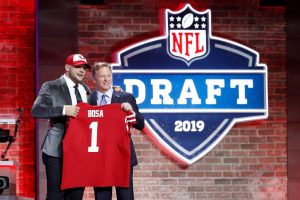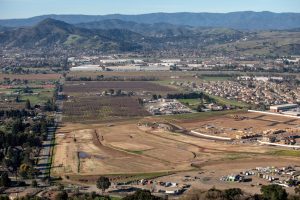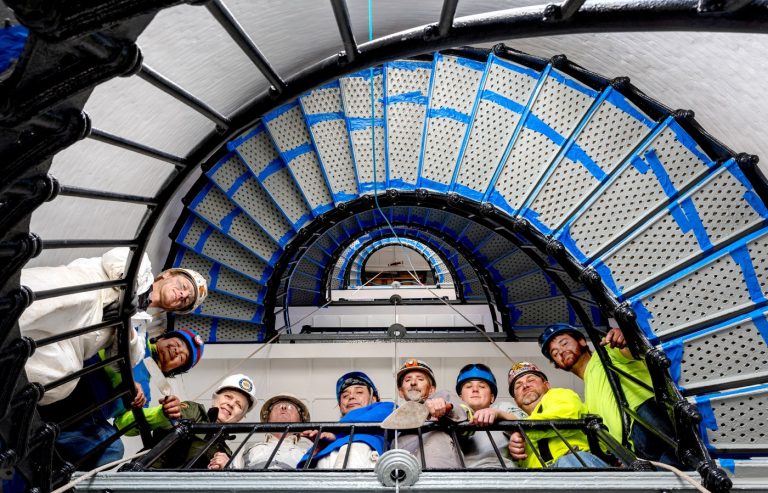Recent ads from Gov. Gavin Newsom’s political action committee continue to push his effort to shake up the national gun debate with a constitutional amendment that would nationalize key California firearm restrictions.
“If Congress and the courts will not take action to help make our communities safer from gun violence, then we — the people — must do it ourselves,” say the ads on social media from Newsom’s Campaign for Democracy.
The California Legislature in September approved a resolution in support, and Newsom said 33 other states must do likewise to call a constitutional convention and consider the amendment. But even among the 18 other U.S. states with legislatures led by Newsom’s Democratic Party, none has done so.
Political observers aren’t surprised, noting the nation’s political landscape, amendment rules and the risks that could come with Newsom’s proposed path of calling a constitutional convention.
“For the foreseeable future, there is zero chance of a constitutional convention that would draft a gun control amendment,” said Claremont McKenna College politics professor John J. Pitney Jr., noting Republicans control 59 percent of state legislative chambers. “If they were to support a constitutional convention at all, its purpose would be to expand gun rights. And liberal legislators are right to be leery of a runaway convention. It might try to rewrite the whole Constitution and do things such as declaring Christianity the national religion.”
A state Senate leader in neighboring Oregon said no one has reached out to him or the governor’s office about a resolution supporting Newsom’s proposed amendment, but that the threat of a “runaway” constitutional convention is a concern.
“I don’t see us taking it up,” said Oregon Sen. Floyd Prozanski, a Democrat who chairs the state’s Senate Judiciary Committee, arguing other legislative paths appear more fruitful. “The last thing I’d want is to open up something where we can’t put the lid back on the can.”
Newsom’s proposed Right to Safety amendment would establish a national age to buy all firearms at 21, universal background checks and a waiting period before the buyer could take possession of them, and ban “assault weapons” — which look like military assault rifles but don’t fire as quickly with one shot per trigger pull. A 1994 federal assault weapon ban expired in 2004.
So why is Newsom pushing it if it’s gotten a lukewarm reception even in blue states?
“His supporters would say that the effort is aspirational,” Pitney said. “He is using this proposal as a way to encourage debate and deliberation about gun control, in hopes of encouraging future national legislation on the topic. His detractors would say it’s a gimmick to get publicity and build up a contact list for future political efforts.”
The California governor’s office referred questions to Newsom’s personal spokesman Nathan Click, who noted that unlike California, many states only have part-time legislatures, and the first time they could consider the matter would be next year.
“Constitutional amendments take decades, but Americans don’t have that kind of time to wait for comprehensive gun safety,” Click said. “That’s why, since California became the first state to pass the Right to Safety amendment last year, we’ve briefed leaders in more than 20 states. We have been very pleased by the response during these conversations and look forward to more progress next year when all states are back in session.”
But when asked which lawmakers in other states are preparing to roll out support resolutions, he said only “stay tuned.”
Gun-control advocacy groups that would be among Newsom’s allies in lobbying other states for his amendment declined to comment on its progress or their efforts to promote it, including Moms Demand Action, whose founder, Shannon Watts, had praised Newsom’s proposal for its “commonsense solutions.”
Gun rights advocates meanwhile argued the governor is discovering there’s little appetite for California gun laws outside the Golden State.
Randy Kozuch, executive director of the National Rifle Association’s Institute for Legislative Action, said “to our knowledge, no other state has introduced or acted on a similar proposal,” while 29 have adopted “constitutional carry” laws allowing concealed guns in public without a permit.
“Gavin Newsom needs to come to grips with the fact that the rest of the country isn’t buying what he’s selling,” Kozuch said.
To the concern of Oregon’s Sen. Prozanski about a potential runaway constitutional convention, also raised during resolution hearings in Sacramento last year by Democrats like Sen. Scott Wiener of San Francisco, Click noted the state’s resolution explicitly states that it would be valid only for the proposed gun amendment.
But constitutional scholars say it’s unclear that’s legally possible. The U.S. Constitution lays out two routes for amendments, only one of which has been used in the adoption of its 27 current amendments. They were enacted after Congress by two-thirds votes in the House and Senate called for the amendments and they were ratified by at least three-fourths of the states.
Newsom proposed the alternative path, in which the legislatures of two-thirds of the states — 34 of them — ask Congress to call a convention for considering constitutional amendments, which then must be approved by three-fourths of the states.
The only such convention was called in 1787 to address problems of a weak central government in the fledgling country’s Articles of Confederation. It led to a wholesale rewrite and adoption two years later of the Constitution we have today.
“When the founding convention gathered at the Philadelphia statehouse, they gathered to only amend the Articles of Confederation,” Albert said. “That’s evidence that the power of a constitutional convention, a national convention, is unlimited.”
Related Articles
Opinion: Biden is closing a sacred portal into American gun culture
Biden administration to require thousands more gun dealers to run background checks
Oakland man sentenced for attempting to export firearms, night vision scopes to Oman
Fearing political violence, more states ban guns at polling places
Elias: You’re less likely to be shot in California than in red states
Newsom said his proposal was motivated by the U.S. Supreme Court’s 2022 Bruen decision that found New York’s concealed carry permit rules overly restrictive and laid out a Second Amendment right-to-bear-arms review framework more favorable toward gun rights. The ruling has put California’s similarly restrictive concealed carry permit rules and other laws like the state’s assault weapon ban in question.
But lawmakers in other states like Prozanski, a prosecutor and gun owner, say the Constitution and court rulings on gun rights still allow plenty of gun laws to be adopted through easier legislative pathways. Just this week, President Biden closed a gun show loophole by expanding background checks on gun sales, addressing one of the provisions of Newsom’s proposed amendments.
“We definitely have a lot of bandwidth and room to do something different,” Prozanski said.












